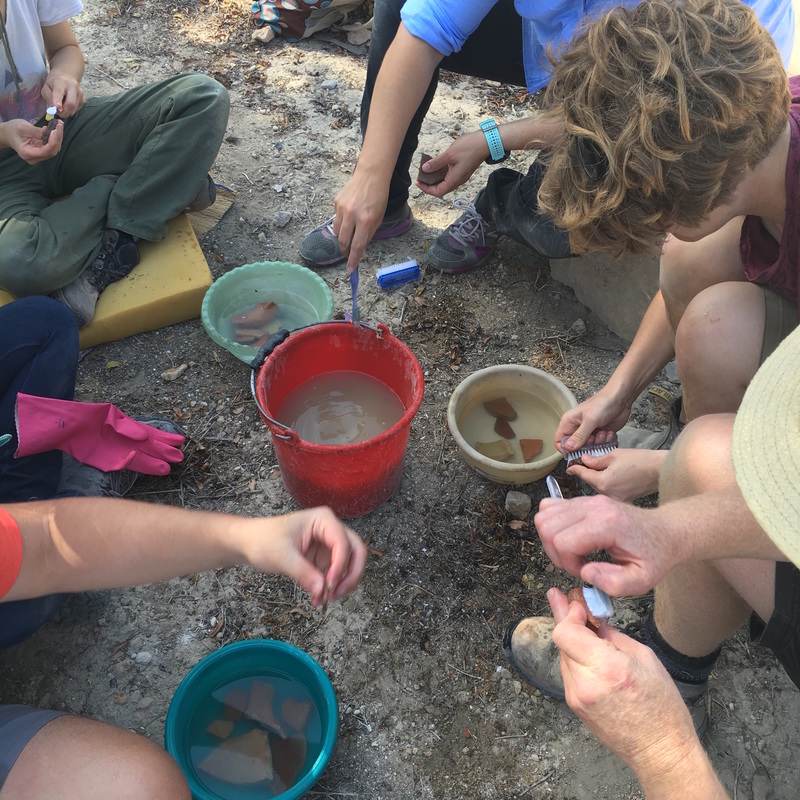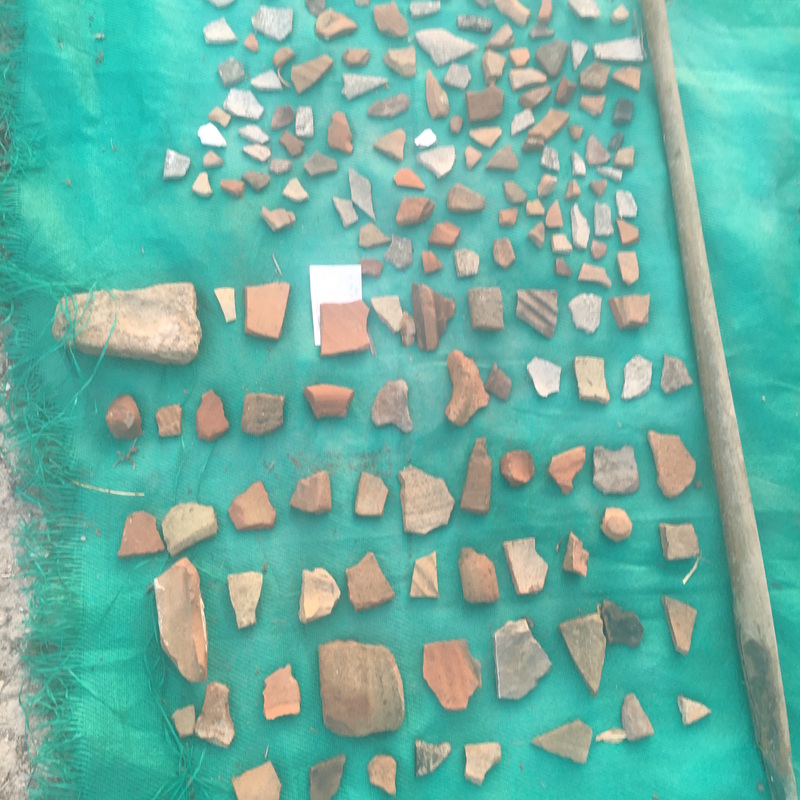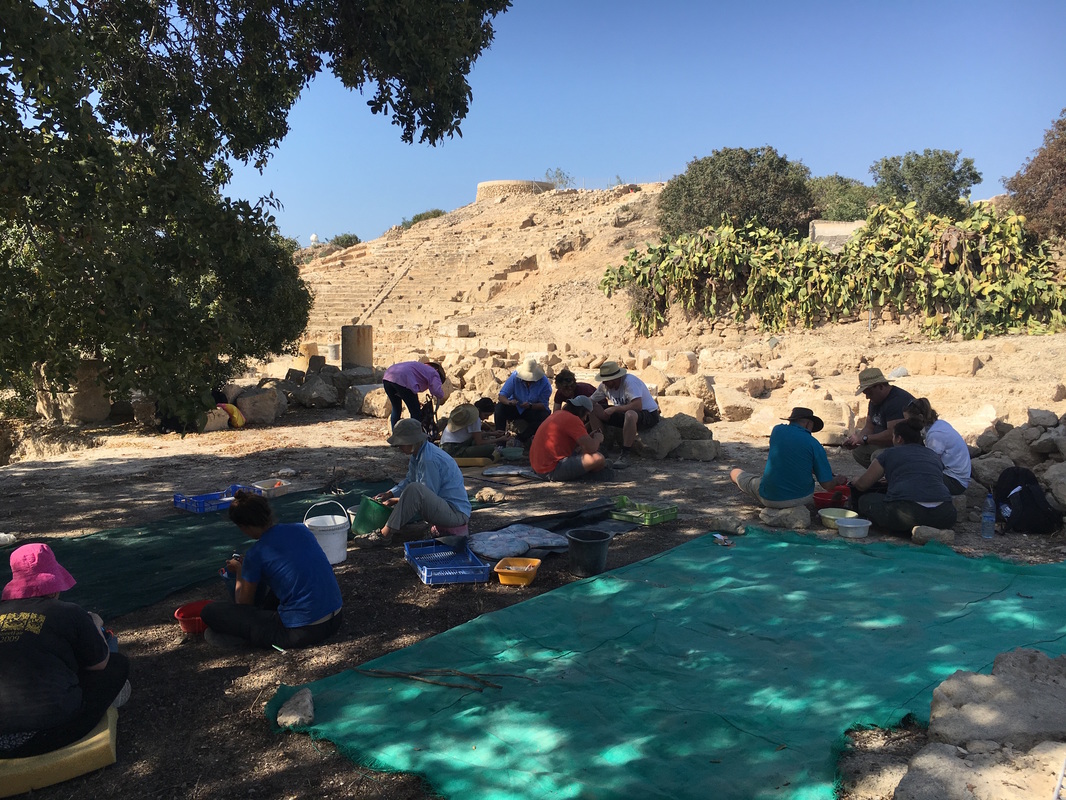It is an essential part of the archaeological process. Obviously all finds are dirty when they are excavated, so it is important that all ceramic sherds are washed thoroughly, irrespective of age and findspot to enable further study. We cannot analyse fabric, determine chronology of the finds and start the sorting process if they remain dirty.
It is important that ceramic and other finds which can be washed are separate from small finds, glass, metal, and decorated ceramics that require more specialised cleaning and conservation before the buckets are filled. It is also important that the students clean all sides of the sherd they have. And before you ask, no, no-one has invented a washing machine for sherds. Yet.
Although we will have the assistance of some local volunteers to help us with pot washing in coming weeks, it is important for the team to get some experience of this first step in the finds process. It is a great way to get to know the types of finds coming out of the deposit you are working in and will help with you analysis of the deposit.
So the team set to work today under the shade of nearby trees cleaning the finds from the first two days of excavation, and leaving them to dry before the preliminary sherd count and sort can take place for each deposit. There will be many more to follow!



 RSS Feed
RSS Feed